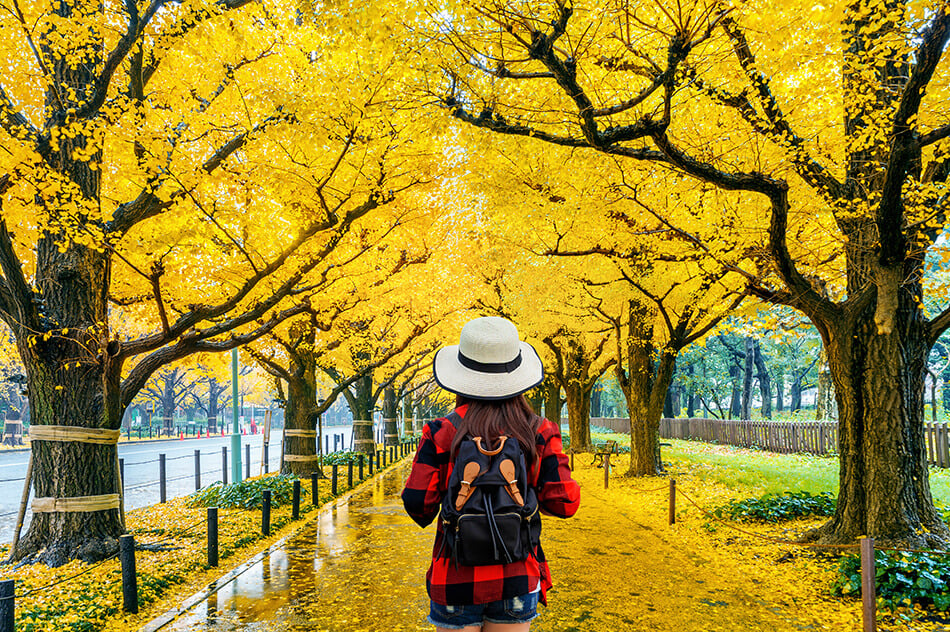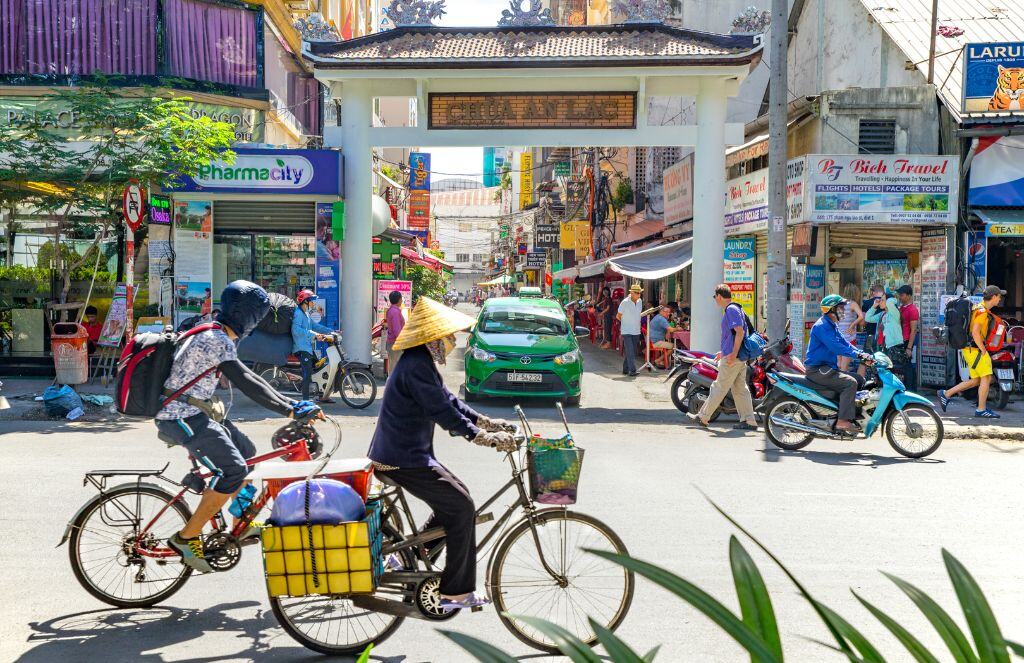Tipping in Vietnam – Is it Customary to Tip in Vietnam?
With its incredible landscapes, fascinating culture, and delicious cuisine, it's easy to see why Vietnam is one of the most popular tourist destinations in the world. But when it comes to respecting Vietnam's traditions, it's incredibly important to know what you're doing - especially when tipping.
Today, we're going to explore everything you need to know about tipping in Vietnam. We'll dive into Vietnam's tipping culture, who you should and shouldn't tip, and look at recommended tipping amounts.
What is the Tipping Culture in Vietnam?
Tipping culture is practically non-existent in Vietnam, and it isn't expected in most situations. However, in tourist-heavy areas, it is known that visitors to Vietnam may want to leave a tip as a gesture of thanks for excellent service, and any tips received are always greatly appreciated.
Why is Tipping Uncommon in Vietnam?

One of the main reasons why tipping in Vietnam is so uncommon is because Vietnamese culture places more of an emphasis on collective gain rather than personal gain. As such, the concept of tipping simply doesn't align with the country's cultural perspective.
Similarly, Vietnamese culture places a strong emphasis on providing the best possible hospitality and service as standard, and by providing a tip, you run the risk of implying that the service you received was substandard.
Another reason why tipping is uncommon in Vietnam is that, unlike many Western countries, service staff in Vietnam are paid a regular wage, which, along with the lower cost of living, means that there's less reliance on tipping to supplement their income.
When Should You Consider Leaving a Tip?

While you're never expected to tip in Vietnam, there are some instances in which service industry workers have become accustomed to receiving tips for good service. These include:
Tipping Tour Guides
One of the instances where tipping is becoming common practice in Vietnam is on tours, and whether you're on foot or taking part in a motorbike tour, a tip at the end is always appreciated.
What is a Fair Tip to Leave a Tour Guide in Vietnam?
The recommended tip amount for tour guides in Vietnam is between 10%-15% of the tour cost. So, if you paid ₫800,000 VND for a tour, tip your tour guide around ₫81,000-₫163,000 VND ($5-$10 AUD).
Tipping in Restaurants
You can tip in Vietnamese restaurants if you feel you have received outstanding service, although it's important to check that a service charge hasn't already been included before you leave cash for your server.
What is a Fair Tip to Leave in Restaurants in Vietnam?
A tip of around 10% of the total bill (including the service charge) is an acceptable amount to tip a server, and in some high end restaurants you can leave up to 20% of the total bill.
Tipping Hotel Staff
The only staff members you should tip in Singapore hotels are porters and housekeeping staff. Some high end hotels may have a concierge service, but tipping a concierge is less common.
What is a Fair Tip to Leave Hotel Staff in Vietnam?
For porters, a tip of ₫16,300-₫32,600 VND ($1-$2 AUD) per bag would be an acceptable amount, and for housekeepers, a daily tip of ₫16,300 VND ($1 AUD) is recommended.
Tipping Spa Staff
One instance in which tipping is almost expected is when you're receiving spa treatments, and part of this is because spa staff aren't paid very well compared to other service industries. So, whether it's a massage, facial, manicure, or any other kind of treatment, you should always consider leaving a tip.
What is a Fair Tip to Leave Spa Staff in Vietnam?
For spa staff, a tip of around 10%-20% of the total bill is generally a good amount. So, should your services come to ₫3,260,000 VND, a tip of ₫326,000-₫652,000 VND ($20-$40 AUD) would be greatly appreciated.
Vietnam Tipping Etiquette: How to Give a Tip?

Should you find yourself in a situation where you'd like to leave a tip for the service provided, it's important to do so with cultural sensitivity. Be sure to hand your tip to the recipient discreetly to avoid embarrassment, or leave it on your table for them to find without drawing attention.
In a culture where tipping isn't expected, it's also nice to thank the recipient verbally, alongside leaving some money for them. You can do this by saying "cảm ơn", which means "Thank you", and doing this will enhance the sincerity of your appreciation.
Top Tip: Whatever service you've received, it's always best to tip using cash in Vietnam, and you can get the best rates for AUD to VND here.
Are There Any Cases Where You Should Avoid Tipping in Vietnam?
As you travel around Vietnam, you'll encounter loads of places that you feel tipping would be accepted but it isn't. The first of these is street food vendors, whose food stalls essentially act as fast food or takeout services where tipping is entirely unnecessary.
You also don't need to worry about tipping in coffee shops, as this is a counter service with a quick grab-and-go operation. However, if there is a tip jar on the counter, you can throw a few Vietnamese Dong in as a gesture of appreciation, especially if you've got a large or complicated order.
Unlike many other countries, you also won't need to worry about tipping taxi drivers in Vietnam. Rideshare apps, like Grab (the Southeast Asian counterpart to Uber), do allow you to discreetly tip your taxi driver if you feel they've provided outstanding service, but it really isn't expected.
Heading to Vietnam? Get the Best Rates of Vietnamese Dong at Crown Currency
Since cash is the best way to tip in Vietnam, it's important that you have plenty on you as you travel through this remarkable country, and you can change AUD to VND with no commission fees or unexpected costs by visiting your nearest Crown Currency Exchange store today!
FAQs
Is Vietnam expensive?
Visiting Vietnam is relatively inexpensive as long as you budget properly. Food, accommodation, and travel are cheap, but some activities are more expensive than others.
What currency is used in Vietnam?
The currency used in Vietnam is the Vietnamese Dong (VND).
Do I need to take cash to Vietnam?
It's best to take Vietnamese Dong (VND) in cash when visiting Vietnam, as this will help you avoid expensive bank and credit card charges for international use.
What is the Tipping Culture in Vietnam?
Tipping culture is practically non-existent in Vietnam, and it isn't expected in most situations. However, in tourist-heavy areas, it is known that visitors to Vietnam may want to leave a tip as a gesture of thanks for excellent service, and any tips received are always greatly appreciated.
Why is Tipping Uncommon in Vietnam?
One of the main reasons why tipping in Vietnam is so uncommon is because Vietnamese culture places more of an emphasis on collective gain rather than personal gain. As such, the concept of tipping simply doesn't align with the country's cultural perspective.
Similarly, Vietnamese culture places a strong emphasis on providing the best possible hospitality and service as standard, and by providing a tip, you run the risk of implying that the service you received was substandard.
Another reason why tipping is uncommon in Vietnam is that, unlike many Western countries, service staff in Vietnam are paid a regular wage, which, along with the lower cost of living, means that there's less reliance on tipping to supplement their income.
When Should You Consider Leaving a Tip?
While you're never expected to tip in Vietnam, there are some instances in which service industry workers have become accustomed to receiving tips for good service. These include:
Tipping Tour Guides
One of the instances where tipping is becoming common practice in Vietnam is on tours, and whether you're on foot or taking part in a motorbike tour, a tip at the end is always appreciated.
What is a Fair Tip to Leave a Tour Guide in Vietnam?
The recommended tip amount for tour guides in Vietnam is between 10%-15% of the tour cost. So, if you paid ₫800,000 VND for a tour, tip your tour guide around ₫81,000-₫163,000 VND ($5-$10 AUD).
Tipping in Restaurants
You can tip in Vietnamese restaurants if you feel you have received outstanding service, although it's important to check that a service charge hasn't already been included before you leave cash for your server.
What is a Fair Tip to Leave in Restaurants in Vietnam?
A tip of around 10% of the total bill (including the service charge) is an acceptable amount to tip a server, and in some high end restaurants you can leave up to 20% of the total bill.
Tipping Hotel Staff
The only staff members you should tip in Singapore hotels are porters and housekeeping staff. Some high end hotels may have a concierge service, but tipping a concierge is less common.
What is a Fair Tip to Leave Hotel Staff in Vietnam?
For porters, a tip of ₫16,300-₫32,600 VND ($1-$2 AUD) per bag would be an acceptable amount, and for housekeepers, a daily tip of ₫16,300 VND ($1 AUD) is recommended.
Tipping Spa Staff
One instance in which tipping is almost expected is when you're receiving spa treatments, and part of this is because spa staff aren't paid very well compared to other service industries. So, whether it's a massage, facial, manicure, or any other kind of treatment, you should always consider leaving a tip.
What is a Fair Tip to Leave Spa Staff in Vietnam?
For spa staff, a tip of around 10%-20% of the total bill is generally a good amount. So, should your services come to ₫3,260,000 VND, a tip of ₫326,000-₫652,000 VND ($20-$40 AUD) would be greatly appreciated.
Vietnam Tipping Etiquette: How to Give a Tip?
Should you find yourself in a situation where you'd like to leave a tip for the service provided, it's important to do so with cultural sensitivity. Be sure to hand your tip to the recipient discreetly to avoid embarrassment, or leave it on your table for them to find without drawing attention.
In a culture where tipping isn't expected, it's also nice to thank the recipient verbally, alongside leaving some money for them. You can do this by saying "cảm ơn", which means "Thank you", and doing this will enhance the sincerity of your appreciation.
Top Tip: Whatever service you've received, it's always best to tip using cash in Vietnam, and you can get the best rates for AUD to VND here.
Are There Any Cases Where You Should Avoid Tipping in Vietnam?
As you travel around Vietnam, you'll encounter loads of places that you feel tipping would be accepted but it isn't. The first of these is street food vendors, whose food stalls essentially act as fast food or takeout services where tipping is entirely unnecessary.
You also don't need to worry about tipping in coffee shops, as this is a counter service with a quick grab-and-go operation. However, if there is a tip jar on the counter, you can throw a few Vietnamese Dong in as a gesture of appreciation, especially if you've got a large or complicated order.
Unlike many other countries, you also won't need to worry about tipping taxi drivers in Vietnam. Rideshare apps, like Grab (the Southeast Asian counterpart to Uber), do allow you to discreetly tip your taxi driver if you feel they've provided outstanding service, but it really isn't expected.







.png)
